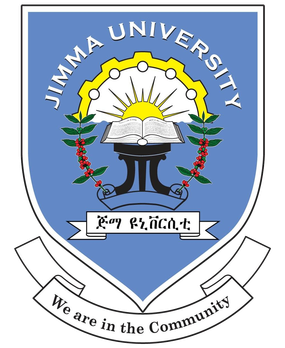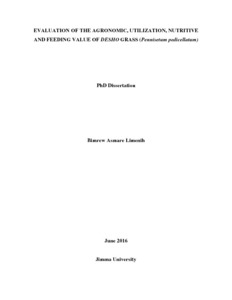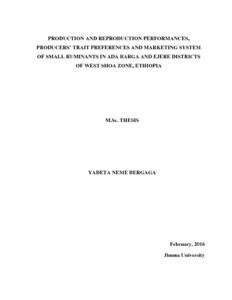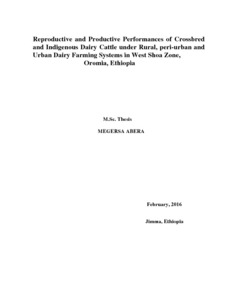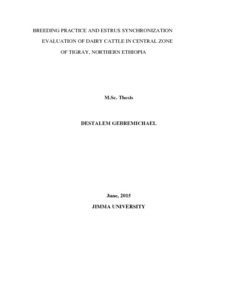Location
imma University (JU) is a public research university located in Jimma, Ethiopia. It is recognized as the leading national university, as ranked first by the Federal Ministry of Education for four successive years (2009 - 2012).
The establishment of Jimma university dates back to 1952 when Jimma college of Agriculture was founded. The university got its current name in December 1999 following the amalgamation of Jimma College of Agriculture (founded in 1952) and Jimma Institute of Health Sciences (founded in 1983).
Currently the university has two campuses; the college of agriculture campus which is located next to downtown Jimma and the main campus located in the suburb of the town. Both campuses are wooded and are just like urban parks that host a plethora of wild life.
Source: Wikipedia (d.d. November 9th 2017).
Members:
Resources
Displaying 1 - 5 of 6Evaluation of the agronomic, utilization, nutritive and feeding value of desho grass (Pennisetum pedicellatum)
This study comprised of field survey, agronomic trial, laboratory and animal evaluation of desho grass. A total of 240 households (hh) were involved in the field survey conducted to assess the status of desho grass production and utilization in Burie Zuria and Doyogena districts, with the use of pre-tested and semi- structured questionnaire.
Production and reproduction performances, producers’ trait preferences and marketing system of small ruminants in Ada Barga and Ejere Districts of west Shoa Zone, Ethiopia
Small Ruminants production, producer’s traits preferences and marketing system in agro- ecologies (AEZs) of Ada Barga and Ejere districts were under taken to characterize production system, reproduction performance, traits preferred for breeding as well as marketing and to document constraints of central highland sheep and goat in its environment. These two districts were selected based on potential for small ruminant production.
Reproductive and productive performances of crossbred and indigenous dairy cattle under rural, peri-urban and urban dairy farming systems in west Shoa Zone, Oromia, Ethiopia
The aim of the study was to assess productive and reproductive performance of indigenous and their crossbred of different exotic blood level of dairy cows and factors affecting their performance in Rural, peri-urban and urban, farming system of West Shoa Zone, Oromia State, Ethiopia. A total of 180 small-scale dairy cows owners were purposively selected and interviewed with pre-tested structured questionnaire to obtain information.
Participatory definition of trait preference and pastorals’ indigenous knowledge on goat breeding strategy around Aysaita district, Ethiopia
Breeding practice and estrus synchronization evaluation of dairy cattle in central Zone of Tigray, northern Ethiopia
The study was conducted in central zone, Tigray, Northern Ethiopia, aimed with assessment of breeding practices and evaluation of estrus synchronization of dairy cattle. The study of the survey covered 180 households found in per-urban and rural areas of Ahferom, Adwa and Laelay michew district which included 113 in rural areas and 67 in per-urban areas of the districts. The Information was collected from secondary data, group discussion, AI technician, household level survey questionnaire, farm visit and personal observations.

